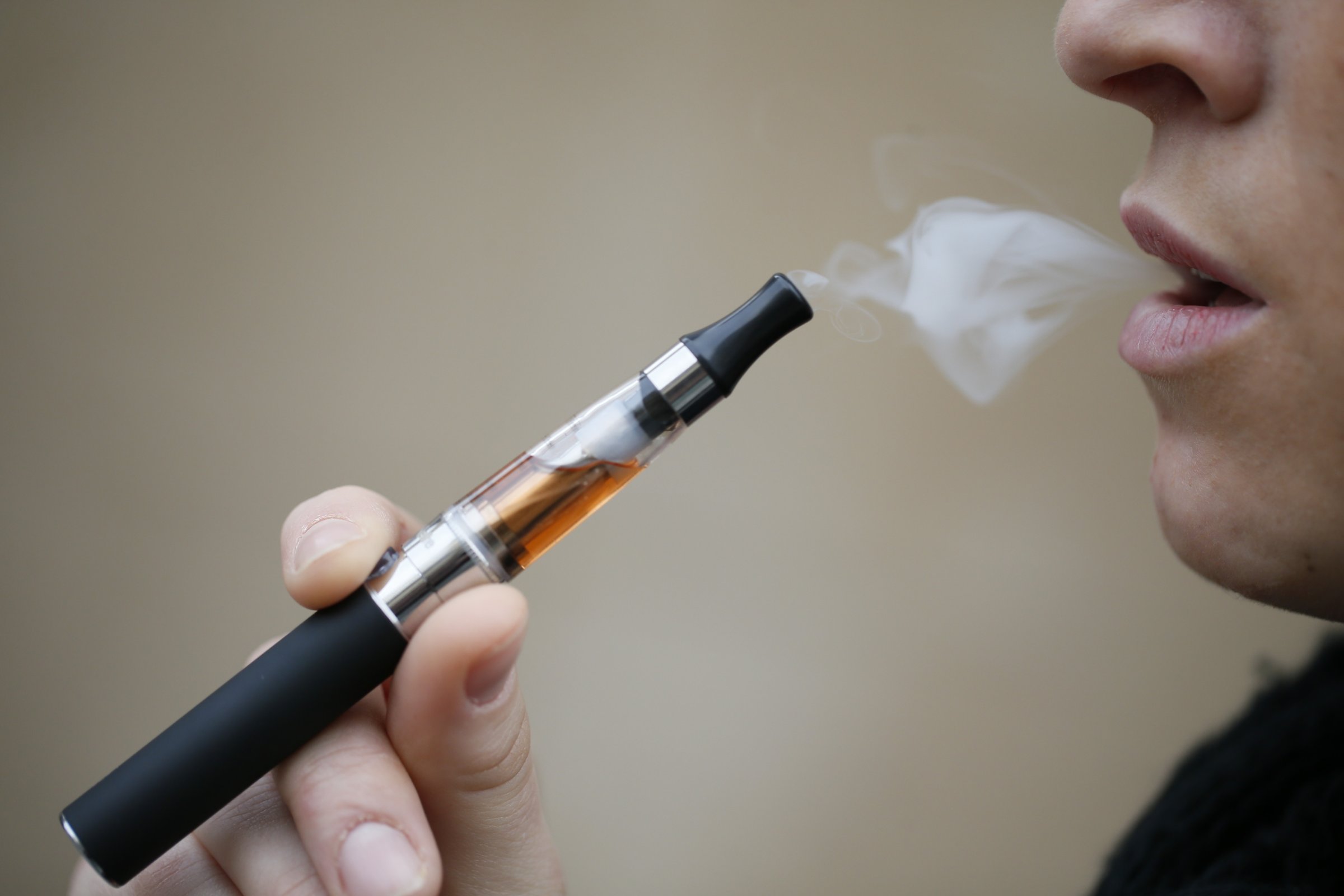
The electronic cigarette business has been something of a Wild West, unbound by regulation in many parts of the world as new manufacturers emerge to create a booming industry that could one day replace a regular pack smokes.
That’s about to change—at least in some places.
The European Parliament, which presides over the 28-member European Union, approved new rules Wednesday to subject electronic cigarettes to many of the same strictures that apply to other tobacco products. Under the new rules, electronic cigarette advertising will be banned in Europe, the products will have to be childproof, the packages will require safety warnings, and they will be limited to 20 milligrams of nicotine. The move, which will have considerable impact on electronic cigarette makers, is likely to be challenged in court, parliamentarians told the New York Times.
(MAGAZINE: The future of smoking)
On the same day in the United States, where electronic cigarettes have grown to a nearly $2-billion dollar business, a group of five Democratic Senators took a much smaller step by introducing legislation that addresses only a tiny fraction of the legal landscape. The proposed bill would give the Federal Trade Commission authority to curtail marketing practices that some electronic cigarette makers already use, like celebrity spokespeople, flavored cigarettes, and cartoon characters featured in advertising (regular cigarettes have been prohibited from TB and radio advertising since 1970). But the bill says nothing about regulating the ingredients in e-cigarette liquid, which include nicotine, propylene glycol—a chemical used to make stage fog that creates the vapor—and other chemicals, or about manufacturing standards for the liquid or the lithium-battery powered devices themselves.
In other words, it barely scratches the surface.
The bill comes as federal regulators at the Food and Drug Administration, who have announced plans to issue rules on e-cigarettes soon, have been dragging their feet for months. Electronic cigarette manufacturers and public health experts alike have been urging the FDA to act. FDA regulation, in addition to laying out some much-needed ground rules, would also make possible the kind of government-sanctioned clinical trials that could give policy makers the information they need about the products’ relative safety. Electronic cigarette manufactures and some public health advocates have spoken about the hope that electronic cigarettes could provide a safer and viable alternative to regular cigarettes. But the products are so new that not enough is known about how safe they are to use, how they affect people second-hand, and whether or not they help smokers quit—or just encourage those who might have quit to keep smoking. There is also a fear that electronic cigarettes could glamorize smoking again after decades of hard work to make smoking seem uncool to kids.
(MORE: Regulating e-cigarettes could have unintended consequences)
Public health experts and manufacturers say the FDA is taking its time because it wants to be sure to put out responsible rules for e-cigs that take their risks and potential as an alternative to regular cigarettes into account. The ranking regulator on tobacco in the FDA, Mitch Zeller, has sounded open to the possibility that electronic cigarettes could have a positive impact.
“Products like e-cigarettes are very interesting,” Zeller, the director of the FDA’s Center for Tobacco Products, told tobacco retailers and reporters at a trade show last year. “You can look at them in the abstract from a harm perspective and say, if it’s not tobacco, if it’s not combusting, then does it make sense to look at is as something that might be potentially much less harmful than any combustible tobacco product that’s out there?” He added, more cautiously: “Any of the newer products that in the abstract might pose less risk, all comes down to how the product is being used. Who is using the product? What is impact on initiation, what is the impact on cessation?”
It is perhaps laudable that the FDA is taking its time and not rushing into a sweeping rule like the one Europe has just passed. But in the absence of federal regulation, states and cities across the country have gone ahead with their own rules, including bans on use in public places (like bars and restaurants) in cities like New York and Chicago.
Europe’s move, which will affect electronic cigarette manufactures in the U.S., should put pressure on the FDA to take its own big steps.
More Must-Reads From TIME
- The 100 Most Influential People of 2024
- Coco Gauff Is Playing for Herself Now
- Scenes From Pro-Palestinian Encampments Across U.S. Universities
- 6 Compliments That Land Every Time
- If You're Dating Right Now , You're Brave: Column
- The AI That Could Heal a Divided Internet
- Fallout Is a Brilliant Model for the Future of Video Game Adaptations
- Want Weekly Recs on What to Watch, Read, and More? Sign Up for Worth Your Time
Contact us at letters@time.com